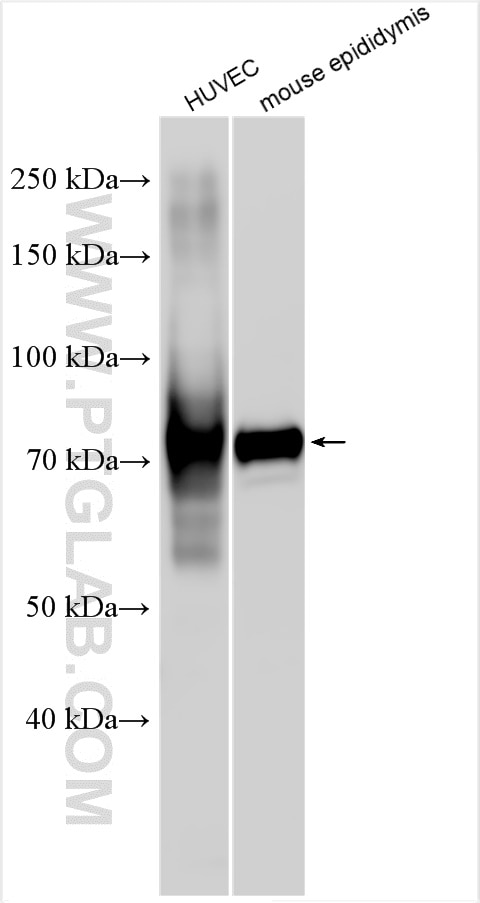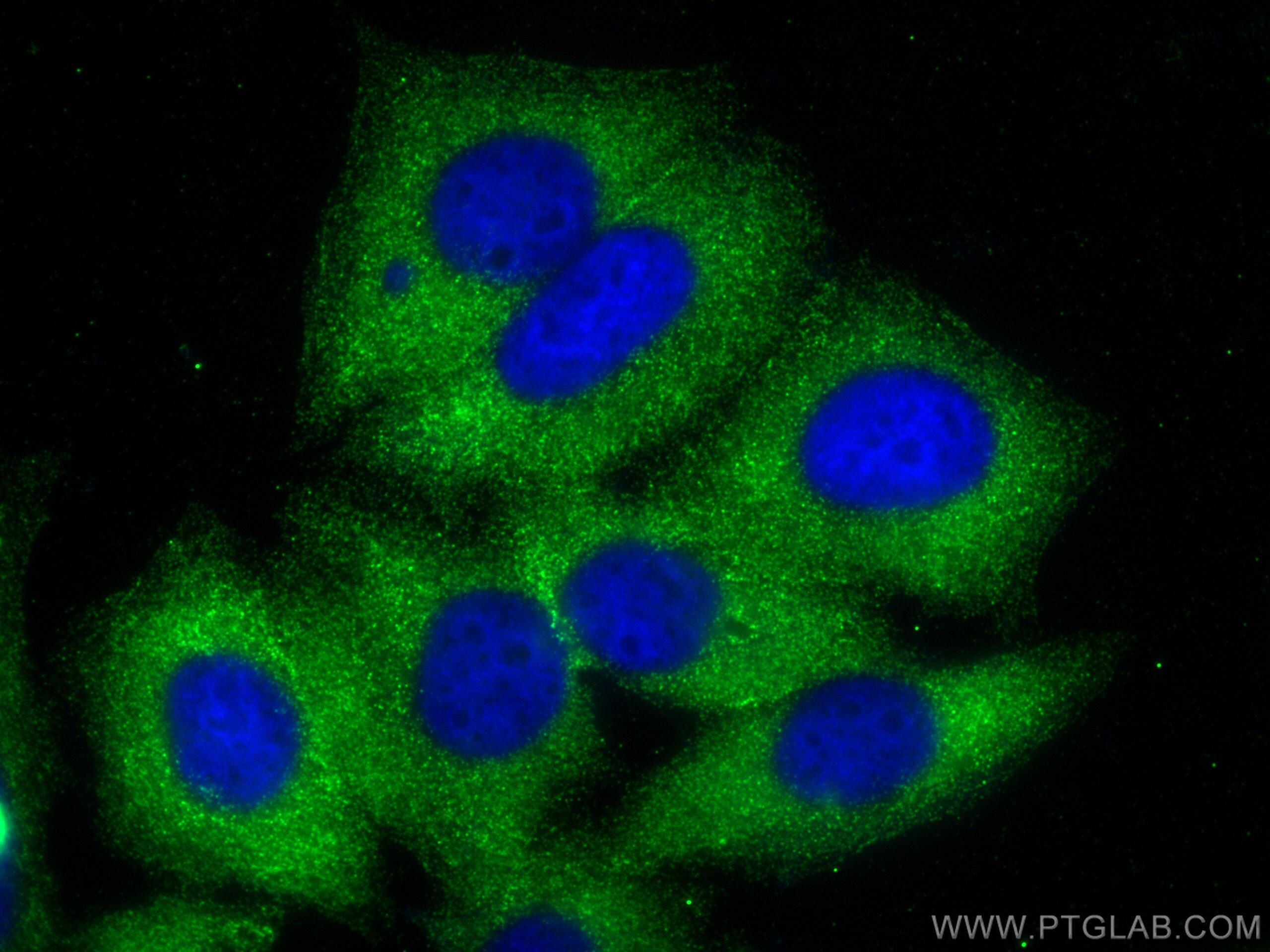BMX Polyklonaler Antikörper
BMX Polyklonal Antikörper für WB, IF/ICC, ELISA
Wirt / Isotyp
Kaninchen / IgG
Getestete Reaktivität
human, Maus
Anwendung
WB, IF/ICC, ELISA
Konjugation
Unkonjugiert
Kat-Nr. : 27413-1-AP
Synonyme
Geprüfte Anwendungen
| Erfolgreiche Detektion in WB | HUVEC-Zellen, mouse epididymis tissue |
| Erfolgreiche Detektion in IF/ICC | HepG2-Zellen |
Empfohlene Verdünnung
| Anwendung | Verdünnung |
|---|---|
| Western Blot (WB) | WB : 1:500-1:1000 |
| Immunfluoreszenz (IF)/ICC | IF/ICC : 1:200-1:800 |
| It is recommended that this reagent should be titrated in each testing system to obtain optimal results. | |
| Sample-dependent, check data in validation data gallery | |
Produktinformation
27413-1-AP bindet in WB, IF/ICC, ELISA BMX und zeigt Reaktivität mit human, Maus
| Getestete Reaktivität | human, Maus |
| Wirt / Isotyp | Kaninchen / IgG |
| Klonalität | Polyklonal |
| Typ | Antikörper |
| Immunogen | BMX fusion protein Ag26407 |
| Vollständiger Name | BMX non-receptor tyrosine kinase |
| Berechnetes Molekulargewicht | 675 aa, 78 kDa |
| Beobachtetes Molekulargewicht | 70 kDa |
| GenBank-Zugangsnummer | BC016652 |
| Gene symbol | BMX |
| Gene ID (NCBI) | 660 |
| Konjugation | Unkonjugiert |
| Form | Liquid |
| Reinigungsmethode | Antigen-Affinitätsreinigung |
| Lagerungspuffer | PBS with 0.02% sodium azide and 50% glycerol |
| Lagerungsbedingungen | Bei -20°C lagern. Nach dem Versand ein Jahr lang stabil Aliquotieren ist bei -20oC Lagerung nicht notwendig. 20ul Größen enthalten 0,1% BSA. |
Hintergrundinformationen
BMX (Bone marrow kinase on chromosome X) is a cytosolic tyrosine kinase and a member of the TEC kinase family. BMX is expressed in hematopoietic cells of the myeloid lineage where it participates in the immune response. Moreover, BMX is expressed in several types of cancers and very recently has been shown to mediate the survival and tumorigenicity of glioblastoma cancer stem cells (PMID: 22449076).
Protokolle
| PRODUKTSPEZIFISCHE PROTOKOLLE | |
|---|---|
| WB protocol for BMX antibody 27413-1-AP | Protokoll herunterladen |
| IF protocol for BMX antibody 27413-1-AP | Protokoll herunterladen |
| STANDARD-PROTOKOLLE | |
|---|---|
| Klicken Sie hier, um unsere Standardprotokolle anzuzeigen |



